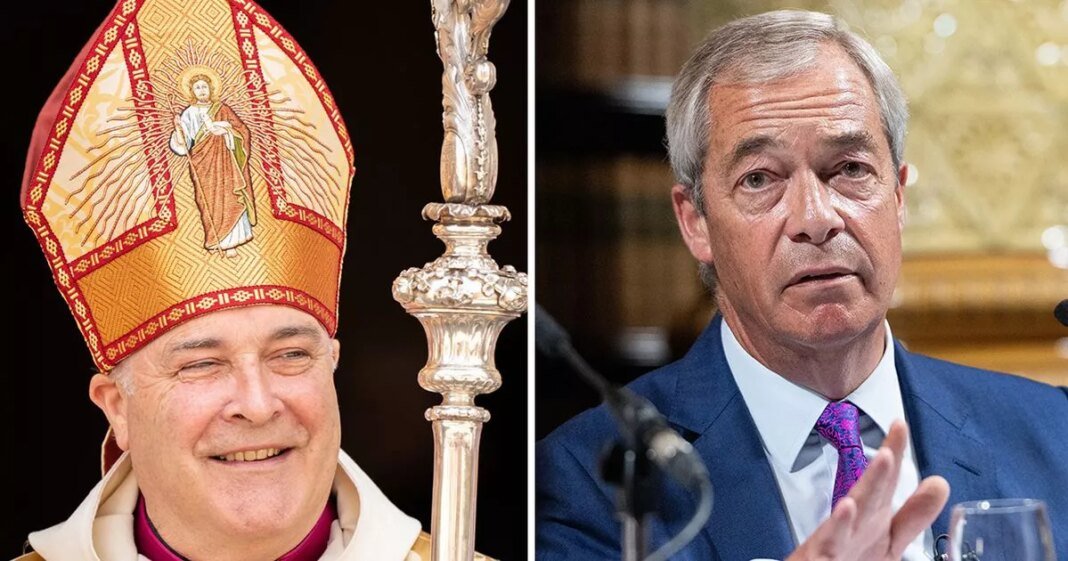The leading bishop in the UK has criticized Nigel Farage’s harsh proposal to repatriate asylum seekers to oppressive regimes and conflict zones as being against the nation’s values. Archbishop of York Stephen Cottrell expressed that historically, Britain has shown compassion and empathy towards those seeking assistance. He cautioned against the “send them back” approach, emphasizing the need for a fair and functional system that accommodates everyone, including those residing near asylum facilities.
Highlighting that Britain cannot turn away individuals escaping war and persecution, the Archbishop stressed the importance of upholding a tradition of offering refuge to those fleeing violence abroad. In contrast, Nigel Farage’s recent declarations to send asylum seekers back to countries like Afghanistan, Syria, Eritrea, and Sudan have sparked controversy and concerns over the potential risks faced by these individuals.
Mr. Farage’s controversial statements have drawn criticism from various quarters, including religious leaders like the Archbishop of York, reflecting a clash between his proposals and established British values. The ongoing debate not only revolves around the practicality of asylum policies but also delves into the core identity of the nation and its commitment to humanitarian principles.
Amidst legal battles concerning asylum accommodations, tensions have escalated, with the Home Office facing challenges in managing the closure of asylum hotels. The Archbishop’s intervention echoes wider apprehensions over the treatment of asylum seekers, particularly in light of recent policy proposals and judicial rulings. As the discourse intensifies, the role of religious figures and moral considerations in shaping national policies comes to the forefront, underscoring the complexities of addressing humanitarian issues within a political context.



